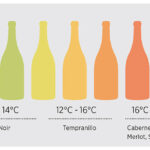Omega-3 fatty acids, specifically DHA and EPA, are vital components of a balanced diet, contributing significantly to overall health. These essential fatty acids are well-documented for their positive impacts on various bodily functions, including improving blood count levels, supporting healthy infant development, enhancing cognitive function, and strengthening the immune system. For many, especially in regions like Norway, fish and seafood stand out as the primary dietary sources of these crucial omega-3s.
However, concerns have been raised about whether the omega-3 content in salmon remains consistent. This stems from changes in salmon feed. Traditionally, fishmeal and fish oil derived from wild fish served as the main sources of omega-3 in salmon aquaculture. As salmon production has increased, and access to wild fish for feed ingredients has become more constrained, plant-based ingredients have been increasingly incorporated into salmon feed as a substitute for marine-based components. This shift towards plant-based feed means that, in some cases, farmed salmon may receive less marine omega-3 from their diet compared to previous years.
Despite these changes in feed composition, it’s important to emphasize that farmed salmon continues to be a valuable source of omega-3 fatty acids. A single serving of farmed salmon is still sufficient to meet the weekly recommended intake of marine omega-3 for healthy adults. A standard dinner portion of farmed salmon, approximately 150 grams, provides an average of 1.8 grams of EPA and DHA. Notably, DHA constitutes a significant portion of this total omega-3 content.
Interestingly, salmon possesses a unique biological capability to produce omega-3 fatty acids themselves. This inherent ability means that the omega-3 content found in salmon meat can actually exceed the levels present in their feed. According to research from the Norwegian Institute of Marine Research, when salmon feed is properly formulated, salmon can effectively convert plant-based omega-3 precursors into beneficial marine omega-3s. This natural conversion process further reinforces salmon’s position as a reliable dietary source of these essential nutrients.

